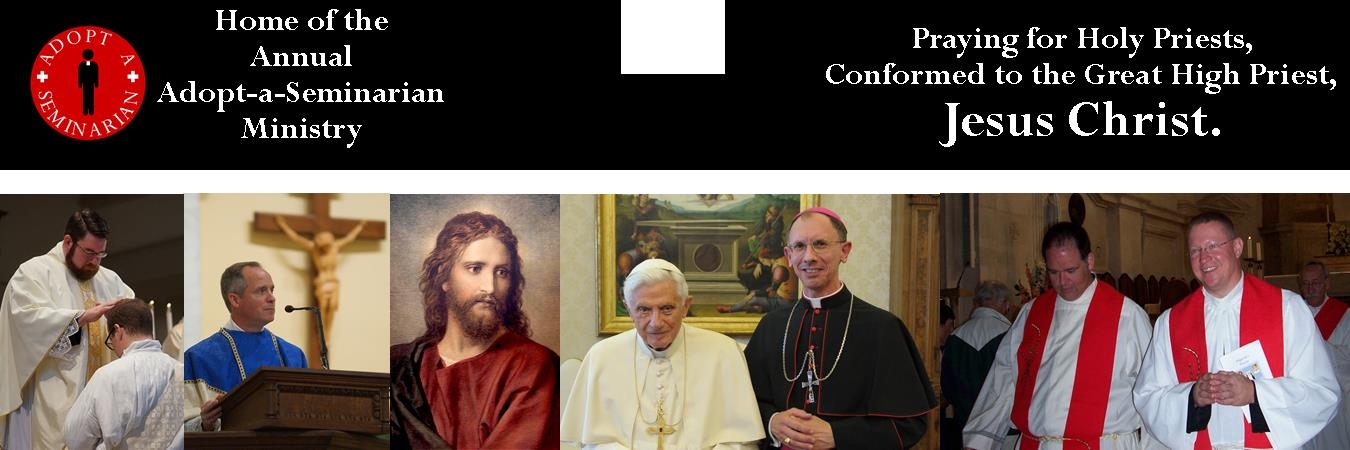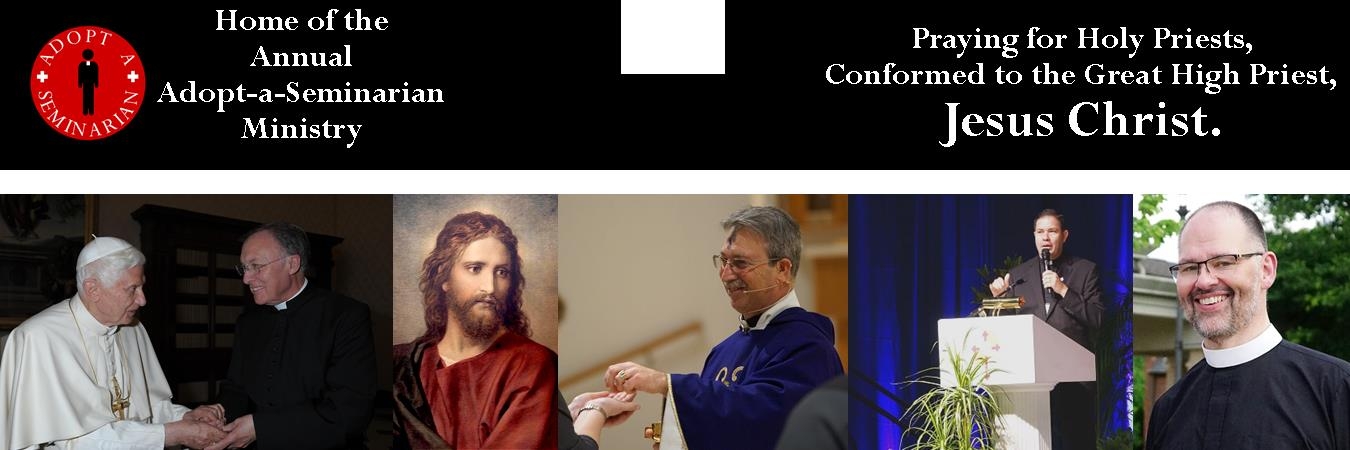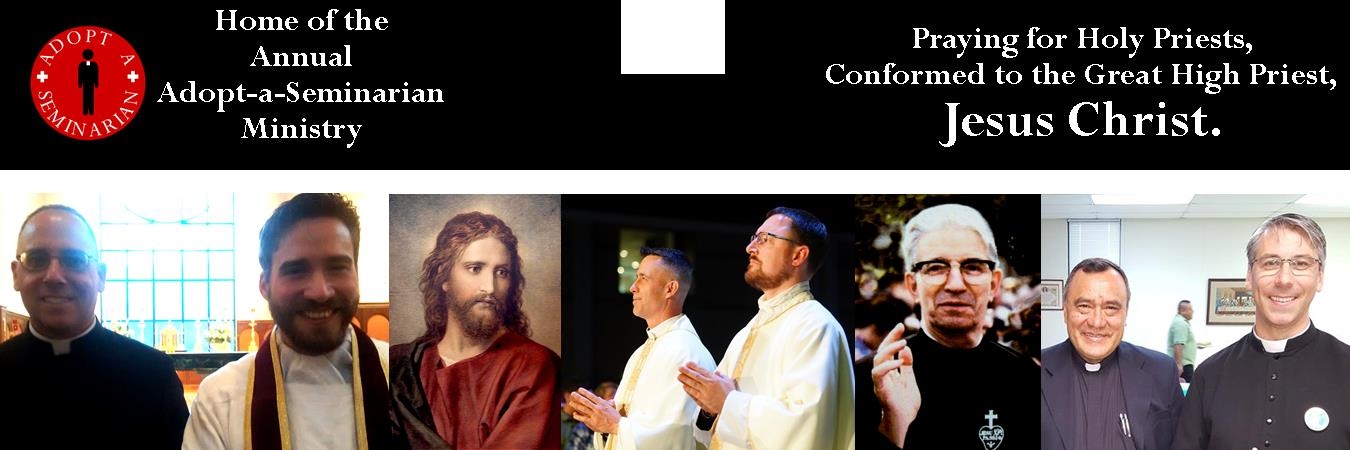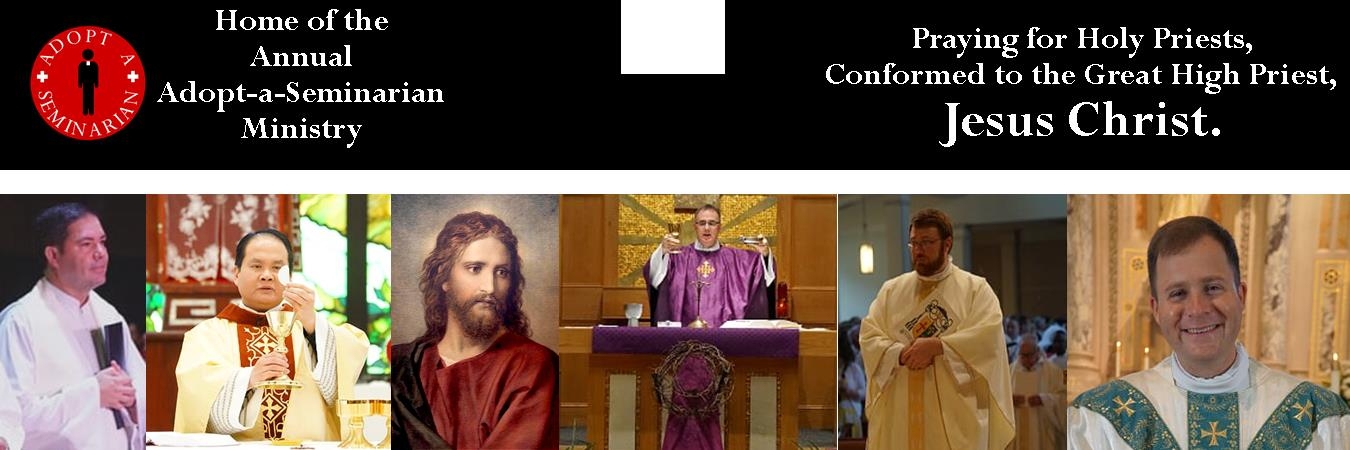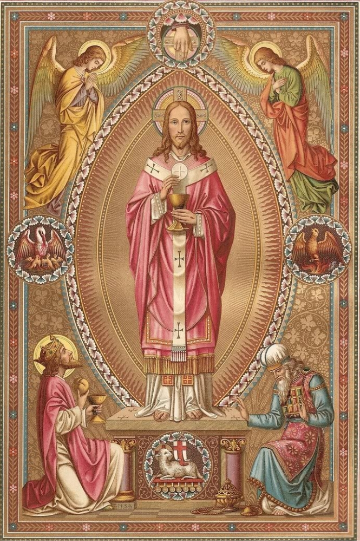
Jesus Christ, Our Great High Priest
“Therefore,
since we have a great high priest who has ascended into heaven, Jesus
the Son of God, let us hold firmly to the faith we profess. For we do
not have a high priest who is unable to empathize with our weaknesses,
but we have one who has been tempted in every way, just as we are—yet he
did not sin. Let us then approach God’s throne of grace with
confidence, so that we may receive mercy and find grace to help us in
our time of need.”
Our ministry prayers are focused on asking God to raise up holy Priests. The initial fruit of these prayers can be seen in our seminarians - the men who respond to God's call to discern a vocation to the Priesthood. We also pray for the men who are already ordained Priests, that the Lord will bless and keep them, and draw them ever closer to Jesus, our Great High Priest.
To better understand the Priesthood of Jesus Christ, and how it relates to clergy and laity, let's look at what the Catholic Church teaches in the Catechism of the Catholic Church, starting with section 1554:
"Everything that the priesthood of the Old Covenant prefigured finds its fulfillment in Christ Jesus, the one mediator between God and men. The Christian tradition considers Melchizedek, priest of God Most High, as a prefiguration of the priesthood of Christ, the unique high priest after the order of Melchizedek; holy, blameless, unstained, by a single offering he has perfected for all time those who are sanctified, that is, by the unique sacrifice of the cross.
The redemptive sacrifice of Christ is unique, accomplished once for all; yet it is made present in the Eucharistic sacrifice of the Church. The same is true of the one priesthood of Christ; it is made present through the ministerial priesthood without diminishing the uniqueness of Christ's priesthood: Only Christ is the true priest, the others being only his ministers.
Two participations in the one priesthood of Christ.
Christ, high priest and unique mediator, has made of the Church 'a kingdom, priests for his God and Father.' The whole community of believers is, as such, priestly. The faithful exercise their baptismal priesthood through their participation, each according to his own vocation, in Christ's mission as priest, prophet, and king. Through the sacraments of Baptism and Confirmation the faithful are 'consecrated to be . . . a holy priesthood.'
The ministerial or hierarchical priesthood of bishops and priests, and the common priesthood of all the faithful participate, each in its own proper way, in the one priesthood of Christ. While being ordered one to another, they differ essentially. In what sense? While the common priesthood of the faithful is exercised by the unfolding of baptismal grace --a life of faith, hope, and charity, a life according to the Spirit--, the ministerial priesthood is at the service of the common priesthood. It is directed at the unfolding of the baptismal grace of all Christians. The ministerial priesthood is a means by which Christ unceasingly builds up and leads his Church. For this reason it is transmitted by its own sacrament, the sacrament of Holy Orders." (CCC 1554-1557)
The common priesthood referred to in the above quote is also called the "royal priesthood" because it belongs to Christ, whom we acknowledge as Lord and King. The word "common", in this sense, is used to mean that which is "common" to all believers. The term "royal priesthood" is found in Sacred Scripture, such as I. Peter 2:9, where the apostle writes, "...You are a chosen people, a royal priesthood, a holy nation, God's special possession, that you may declare the praises of Him who called you out of darkness into His wonderful light."
